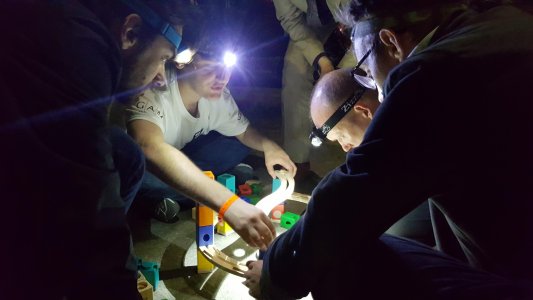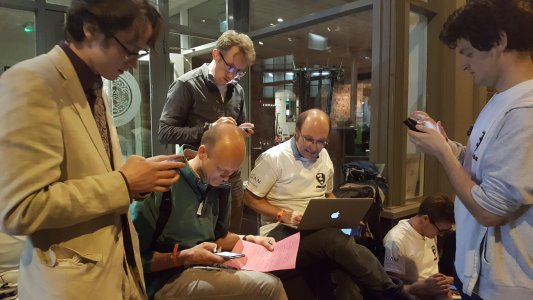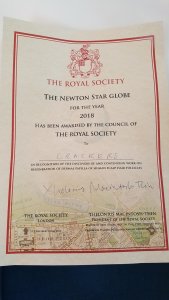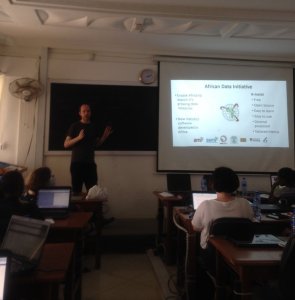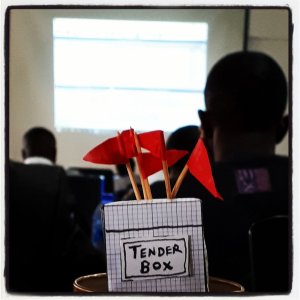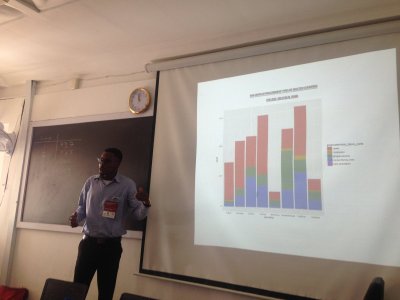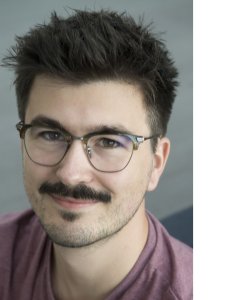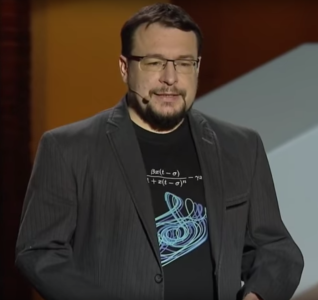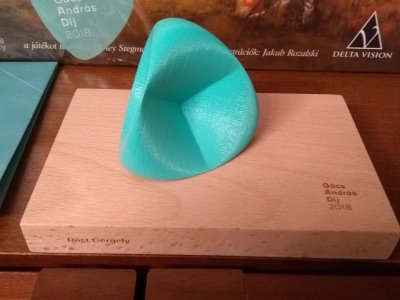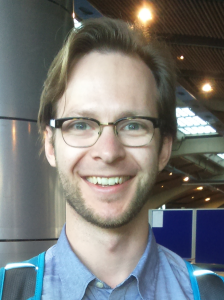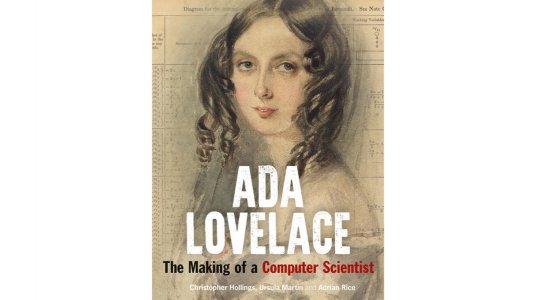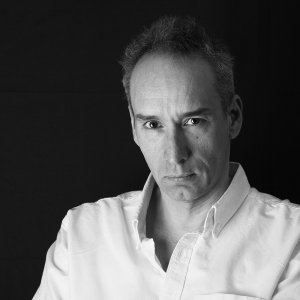It is a little known (and entirely untrue) fact that Isaac Newton's alchemical investigations led him to a formula for a potion to cure baldness. Ten mathematicians from Oxford and UCL spent Saturday night (and Sunday morning) running around central London solving puzzles and gathering clues and ingredients to recreate this potion, before a pedalo race across the Serpentine to present a vial of the wonder cure to the President of the Royal Society.
This wasn't just for fun (although it was certainly enormously enjoyable): the event was raising funds for the charity Raise Your Hands. The other teams, comprising the City's finest, were vying for a trophy, and the Oxford and UCL team (aka 'Crackers') of academics was there to set the benchmark. Which they achieved coming in as honorary winners within minutes of the trophy winners from Cantab Capital.
The puzzle hunt was inspired by a similar charity fundraising event in New York. Teams started at Banking Hall at 20.00 hours on Saturday night, and the first teams reached the finish line at the Serpentine Sackler Gallery in Hyde Park just after 08.30 on Sunday morning. Each team had to collect three sets of alchemical information: from the criminal leader of the Chain Gang on the 7th floor of an NCP car park, from a celebrity businessman on level 32 of the Gherkin, and from a chemistry professor standing next to a statue of a goat in Spitalfields.
All of which led the team to a street corner a few minutes from Tower Bridge where they had to assemble a marble run to decode the alchemical information into a list of ingredients. Three team members went off for a boat trip from Tower Pier, which led to a sequence of puzzles on the south side of the river. A quick call to criminal mastermind Ray then led the team to Newspaper Charlie on Tower Bridge, who was persuaded to hand over a newspaper containing clues to several more locations where the team found ingredients as diverse as apple pip oil and slumber dust.
To get the butterfly tears, team members had to locate a group of mime artists on the South Bank near Waterloo Bridge and learn to mime, then race to Waterloo Vaults to add Newton's family crest to the walls of graffiti. Meanwhile other members of the team were getting apples in Borough Market, and solving a murder in a boxing club using a code written in blood on towels. No ordinary Saturday night.
From their various locations round London, the team gathered at the Institute of Engineering and Technology, to help police solve the mystery of the theft of Newton's flask. Having solved many further puzzles and pieced together the clues, the team identified the culprit and found the flask in her locker, along with the fourth and final piece of a puzzle cube, which revealed that a lab and chemist would be found at the Institute of Contemporary Arts.
Cue a dash along to Carlton House Terrace, where the chemist combined the ingredients to produce a spectacular reaction and a long snaking coil of baldness-curing foam. The team thought they'd finished, but instead had to take a vial of the potion along to the President of the Royal Society, who was fishing on the Serpentine. Other teams were reaching the lake at a similar time, and there was a nail-biting pedalo race to the President to collect a certificate. Then a final dash on a Santander bike to the Sackler Gallery, where the team found one last challenge: conduct an orchestra in a rendition of Bizet's Habanera, complete with violin solo.
Time for breakfast, while the other teams found their way to the finish line. As though that wasn't exhausting enough, even after leaving to head home, the group on the train back to Oxford were working on filling in the details of one of the puzzles. The ultimate 'completer-finishers'.
This was an amazing experience, seeing London from a whole new perspective, with a diverse collection of ingenious puzzles, immersive theatre, and stamina and fitness elements - and all in a good cause. The Raise Your Hands fundraising page is still open.
The Crackers team was captained by Oxford Prof Jon Chapman, and also featured Head of IT Waldemar Schlackow (Oxford), faculty members Ian Hewitt (Oxford), Vicky Neale (Oxford) and Karen Page (UCL), and graduate students James Aaronson (Oxford), Ed Goldsmith (UCL), Momchil Konstantinov (UCL), Johnny Nicholson (UCL) and Spike Smith (Oxford).
Some of the team members are disappointed to confirm that Newton's potion does not in fact cure baldness.




